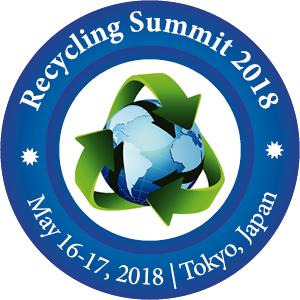
Biography
Biography: Fernando Coelho
Abstract
Concerns have grown across the globe regarding within securing reliable, sustainable and access of certain raw materials including Rare Earth Elements (REEs) which play an important role in different industries such as clean energy and transportation. The high demand of REEs and low natural abundance in REE ore have aroused serious concerns in supply thus recycling has been proposed as one option to solve this supply chain balance problem. Permanent magnet is the application with highest consumption of REEs by end use and the magnets of the Hard Drive Disk (HDD) has been suggested as the most prominent source recycling source of REE. Recycling process of HDD has developed at University of Birmingham where hydrogen has been employed to decrepitate sintered neodymium-iron-boron into a powder which can then be reprocessed to produce new NdFeB magnets. However, the success of recycling methods using hydrogenation treatments is sensitive to the amount of oxidation which drops the magnetic properties of sintered NdFeB magnets. The additional oxygen mainly occurs at the finest particles of Grain Boundary Phase (GBP) in which is too small to be separate by sieving or conventional screening technology. This work focuses on investigation of different physical separation techniques (gravitational, magnetic and flotation) of the ultra-fines particles of the hydrogenated NdFeB recycled powder. It has been shown that magnetic concentration is possible when using a wet low intensity magnetic separation. Both the magnetic concentrator and flotation result in a similar performance.

